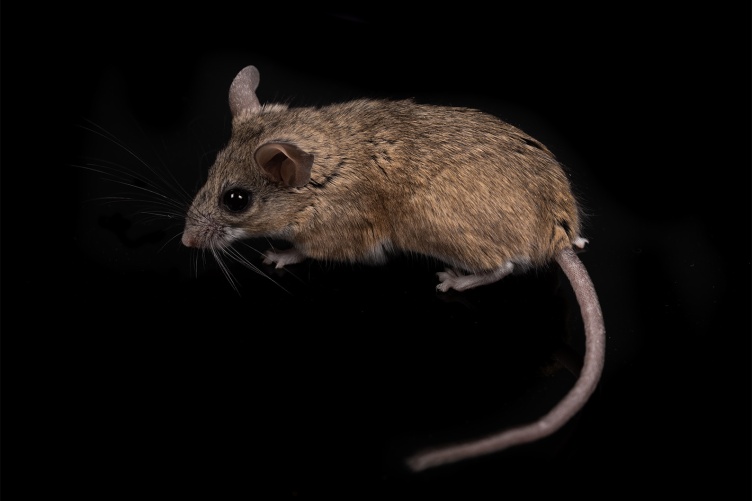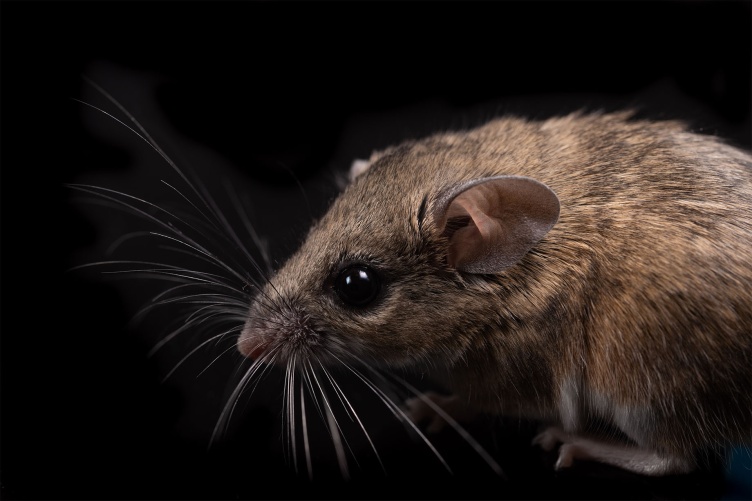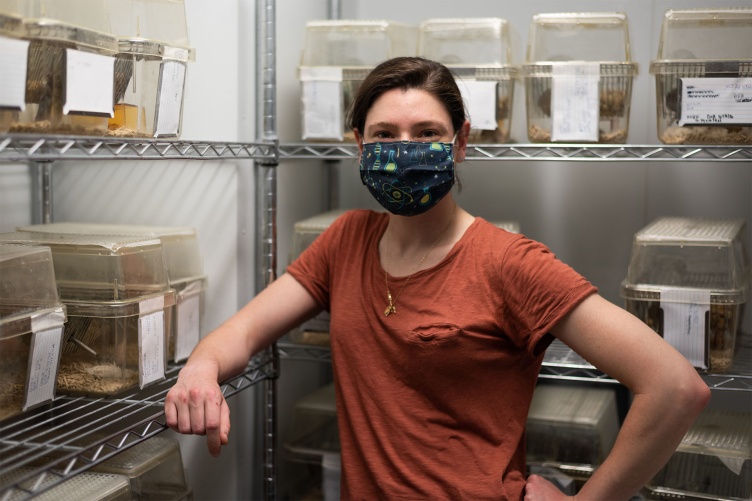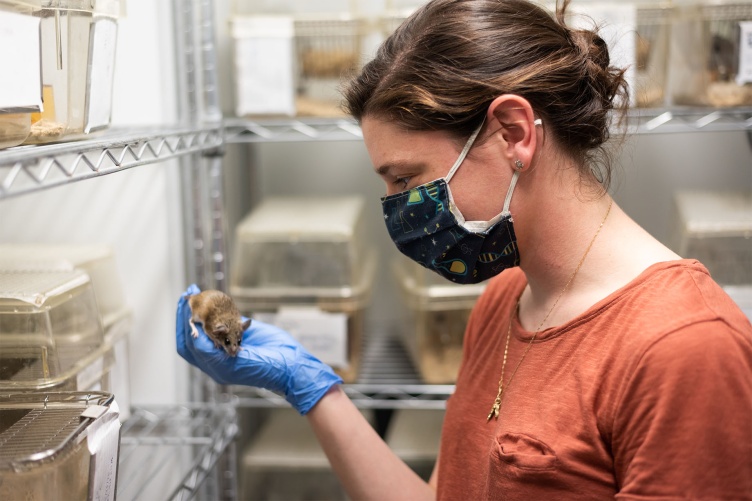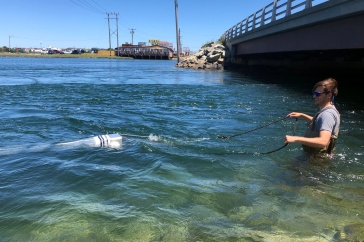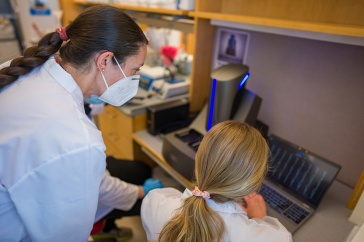Key Research Finding
In response to limited water access, desert mice will eat less to use less energy and limit water lost in digestion, resulting in significant tolerance to water deprivation, as is common in deserts.
Understanding how animals survive harsh, water-limited environments will be critical to sustaining life across a rapidly warming and drought-prone climate. UNH researchers turned to a specialist—the small, unassuming cactus mouse (Peromyscus eremicus), which has evolved as a desert survivalist—to identify strategies and adaptations that could be used by other animals, and possibly humans, to adjust to a changing climate in New Hampshire and far beyond.
Matthew MacManes, an associate professor of genome-enabled biology in the UNH College of Life Sciences and Agriculture, and Dani Blumstein, a recent graduate of UNH’s doctoral program in Molecular and Evolutionary Systems Biology, published their recent discoveries in the Journal of Experimental Biology. They describe how male and female cactus mice respond to periods of water deprivation—modeling conditions that are increasingly observed in the mice’s natural habitat.
The researchers discovered that to survive arid desert conditions, the cactus mice reduced water loss by decreasing food intake and lowering the amount of overall energy they exerted. This strategy is called dehydration anorexia in which water stored in the gastrointestinal tract that aids in digestion is no longer needed and instead absorbed and retained by the animal, increasing tolerance to water deprivation. Decreased food intake also means less water is needed for digestive enzymes, and for the removal of waste products via urine.
“We want to determine if the responses to dehydration that we found, like body temperature regulation, dehydration-related anorexia, and other strategies, are specific desert adaptation and are present only in desert specialists – rather than being a more general trait of all rodents.” ~ Dani Blumstein '24G
Additionally, the researchers noted a difference in how the female cactus mice responded compared to the male mice. While the female mice decreased their body temperatures during water deprivation, the males retained their body temperatures, likely to maintain optimal sperm production and reproductive potential.
“We want to determine if the responses to dehydration that we found, like body temperature regulation, dehydration-related anorexia, and other strategies, are specific desert adaptation and are present only in desert specialists – rather than being a more general trait of all rodents,” Blumstein said, a current postdoctoral researcher at the University of Denver and the University of Massachusetts Amherst, who co-led this study while at UNH. “For future studies, the MacManes lab will focus on non-desert-adapted species, furthering the understand and the degree of intervention needed to preserve non-adapted populations affected by climate change.”
For the next phase of this research, Blumstein and MacManes are studying how the response of cactus mice to dehydration affects the species at the genetic level. This research looks at the genes involved in water retention, as well as the genes involved in responding to decreased food intake.
“Since mammals share a large fraction of their genome, we can compare notable genes in the cactus mice genome to the same gene in humans and determine similarities and differences,” MacManes noted.
According to Blumstein, given our currently predicted patterns of climate change, many species will likely face higher temperatures and more arid, water-stressed environments.
“Because of this, our findings are much more applicable to humans and other organisms that are likely to suffer physiological stress related to new conditions on our changing planet,” she added.
This research is supported by the NIH National Institute of General Medical Sciences (R35 GM128843 to Matthew MacManes).
This work is co-authored by Danielle Blumstein and Matthew MacManes.
You can read the published article, When the tap runs dry: the physiological effects of acute experimental dehydration in Peromyscus eremicus, in Journal of Experimental Biology.
-
Written By:
Maeve Gifford | UNH College of Life Sciences and Agriculture | Maeve.Gifford@unh.edu















































